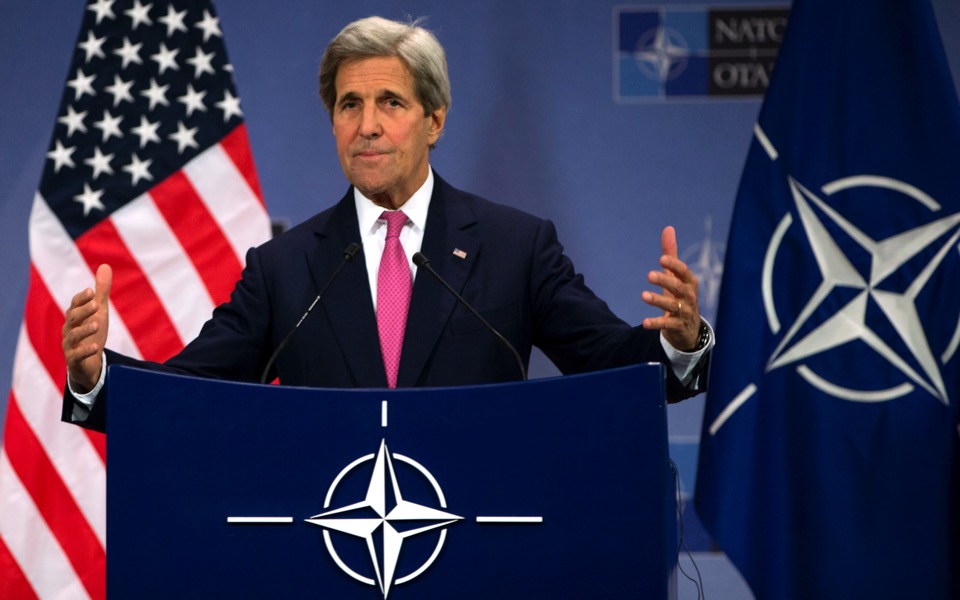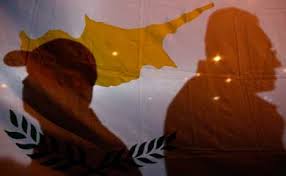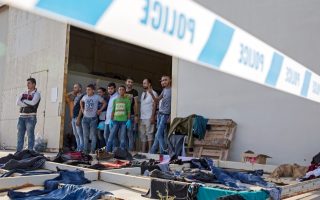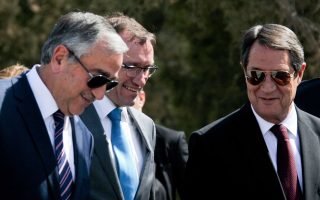Kerry visits divided Cyprus in bid to boost peace talks

US Secretary of State John Kerry visits Cyprus on Thursday in a bid to boost intensified peace talks to reunify the long-divided Mediterranean island.
Hopes have grown for a peace deal to reunite the island since leaders in the Greek Cypriot south and Turkish Cypriot north resumed negotiations in May.
“They have made considerable progress,” a state department official said ahead of the visit.
“This is something that we have strongly supported, seeking to reunify the island as a bi-zonal, bi-communal federation,” he said.
Turkish Cypriot leader Mustafa Akinci and Greek Cypriot counterpart Nicos Anastasiades embarked on a new round of peace talks after Akinci won elections in April.
Cyprus has been divided since 1974, when Turkish troops invaded and occupied its northern third in response to an Athens-inspired coup seeking union with Greece.
A UN-controlled buffer zone – the “Green Line” – runs across the island and through Nicosia, Europe’s last divided capital, separating the breakaway north from the Republic of Cyprus.
Kerry is the second senior US official to travel to Cyprus after Vice President Joe Biden in 2014 became the highest level US visitor since Lyndon B. Johnson in 1962.
He is to meet with both leaders on either side of the Green Line.
Kerry's visit comes amid an international push for a solution to the Cyprus issue, as UN peace envoy Espen Barth Eide last week announced “further progress” in talks, which in recent weeks have
intensified to their highest level in years. ”They now feel more hopeful and confident that the outstanding issues could be resolved in the near future,” the Norwegian diplomat said.
Russian Foreign Minister Sergei Lavrov visited Cyprus on Wednesday, a day after Turkish premier Ahmet Davutoglu made his first visit to the north since assuming office, expressing his support for a peace deal.
“Turkey is ready to support a viable, just and peaceful solution, just like it did with the Annan plan in 2004,” local press quoted Davutoglu as saying during his visit.
In 2004, Greek Cypriots voted down a United Nations blueprint named after then secretary general Kofi Annan, although it was overwhelmingly backed by Turkish Cypriots.
Rival leaders have failed to come up with a power-sharing formula for four decades, struggling with issues including lost property, Turkish soldiers in the north and landmine clearance.
But after Akinci was elected on a mandate to pursue further talks, he and Anastasiades announced several confidence-building measures, including a promise to hand over maps detailing 28 Greek Cypriot minefields in the north, scrapping visa requirements for Greek Cypriots and connecting electricity grids.
Ankara and Washington voiced hope that 2015 could be the year that Cyprus was reunited.
Mete Hatay, a northern Cyprus-based political analyst, said he was “cautiously optimistic” but did not expect negotiations to find a solution by the end of the year.
“The negotiations look good, but it's not easy,” he said.
During the Turkish invasion, some 200,000 people fled in a population exchange, Greek Cypriots to the south and Turkish Cypriots to the north, leaving behind their homes and land.
Their lost property – as well as territory – will be “the last issues that are going to be on the table,” Hatay said.
[AFP]





